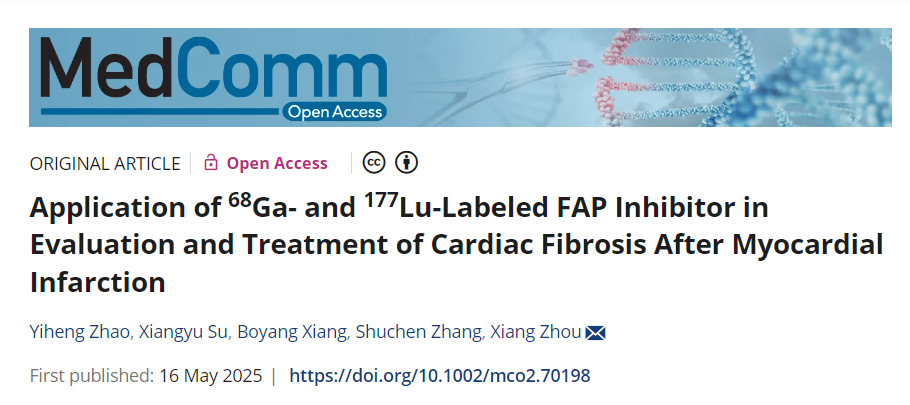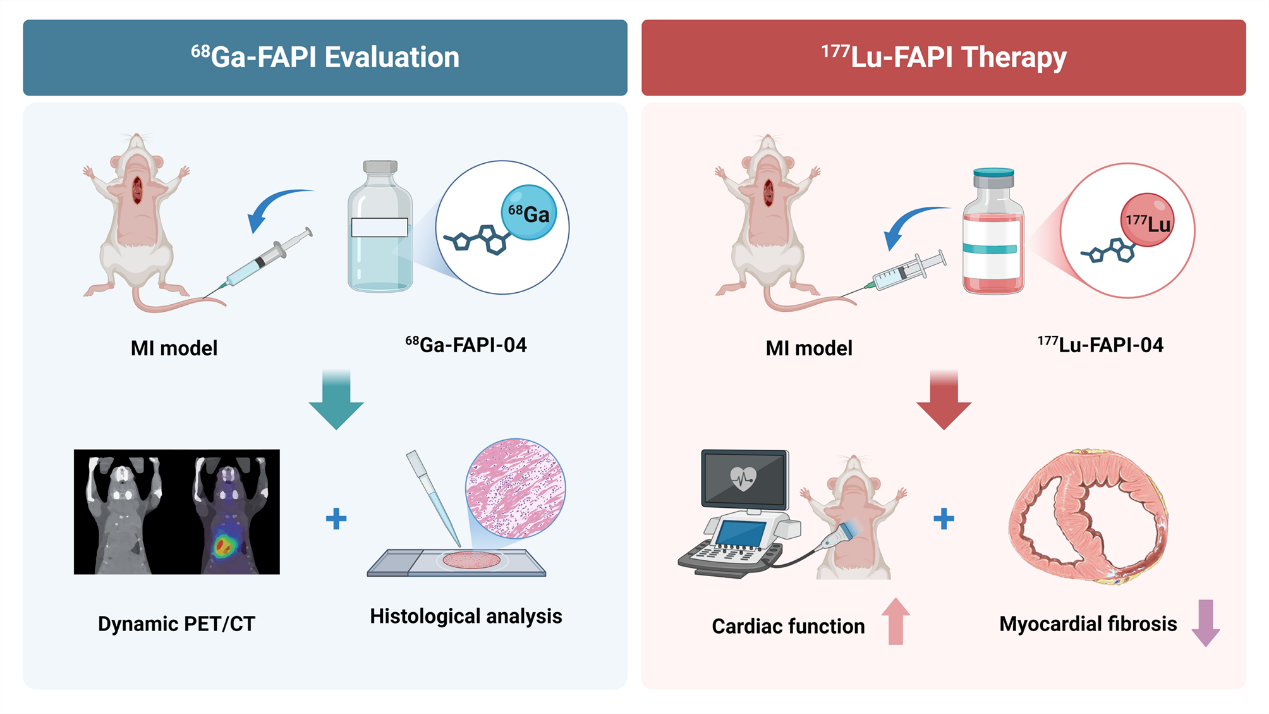A research team led by Professor Xiang Zhou from the Second Affiliated Hospital of Nanjing Medical University has published a study in MedComm titled “Application of 68Ga- and 177Lu-Labeled FAP Inhibitor in Evaluation and Treatment of Cardiac Fibrosis After Myocardial Infarction.” The study presents a promising radionuclide-based strategy for the diagnosis and treatment of myocardial infarction (MI).Recently, Professor Xiang Zhou and his research team published a paper in MedComm titled "Application of 68Ga- and 177Lu-Labeled FAP Inhibitor in Evaluation and Treatment of Cardiac Fibrosis After Myocardial Infarction". The study elucidates the efficacy of 68Ga-FAPI-04 in specifically targeting activated fibroblasts within infarcted myocardial tissue, while the treatment with 177Lu-FAPI-04 mitigates myocardial fibrosis and enhances cardiac function in rat models. This investigation introduces a novel approach for the targeted therapy of myocardial infarction.

Myocardial fibrosis is a prevalent pathological consequence following myocardial infarction, contributing to the repair of damaged cardiac tissue. Nonetheless, excessive fibrosis can be harmful, resulting in increased ventricular stiffness, progressive decline in cardiac function, and ultimately, heart failure. Fibroblast activation protein inhibitors (FAPI) exhibit a high affinity for FAP located on the cell membrane surface. Radioactively labeled FAPI agents are therefore employed clinically for the diagnosis and treatment of various oncological conditions. In this study, the research team synthesized 68Ga-FAPI-04 and 177Lu-FAPI-04 in vitro and utilized PET/CT imaging to evaluate the uptake of 68Ga-FAPI-04 in rat models of myocardial infarction.
The team synthesized both tracers in vitro and used PET/CT imaging to confirm the uptake of 68Ga-FAPI-04 in MI models. Blocking studies validated the specific binding to FAP. Treatment with 177Lu-FAPI-04 showed significant improvement in cardiac outcomes and demonstrated a favorable safety profile with no major hepatic or renal toxicity. This study further expands their potential to cardiovascular applications.Blocking experiments confirmed the specific binding of FAPI-04 to FAP. Further investigation demonstrated that 177Lu-FAPI-04 enhances cardiac function in rats with myocardial infarction, reduces myocardial fibrosis, and exhibits favorable safety profiles, with no significant liver or kidney toxicity observed. This research employs 68Ga-FAPI-04 to assess fibroblast activation following myocardial infarction and explores the therapeutic potential of 177Lu-FAPI-04 in treating myocardial fibrosis, thereby advancing the application of radionuclide therapy in myocardial infarction.

Professor Xiang Zhou from the Second Affiliated Hospital of our university serves as the corresponding author of this study. Yiheng Zhao from the Second Affiliated Hospital of our university and Xiangyu Su from the Second Affiliated Hospital of Soochow University are acknowledged as co-first authors. The research was funded by the National Natural Science Foundation of China.
The original article link:
https://onlinelibrary.wiley.com/doi/10.1002/mco2.70198
(Drafted by Zhou Xiang’s research group; Reviewed by Shen Baixin &Wang Jieyun; Translation revised by Wu Wenbo)



